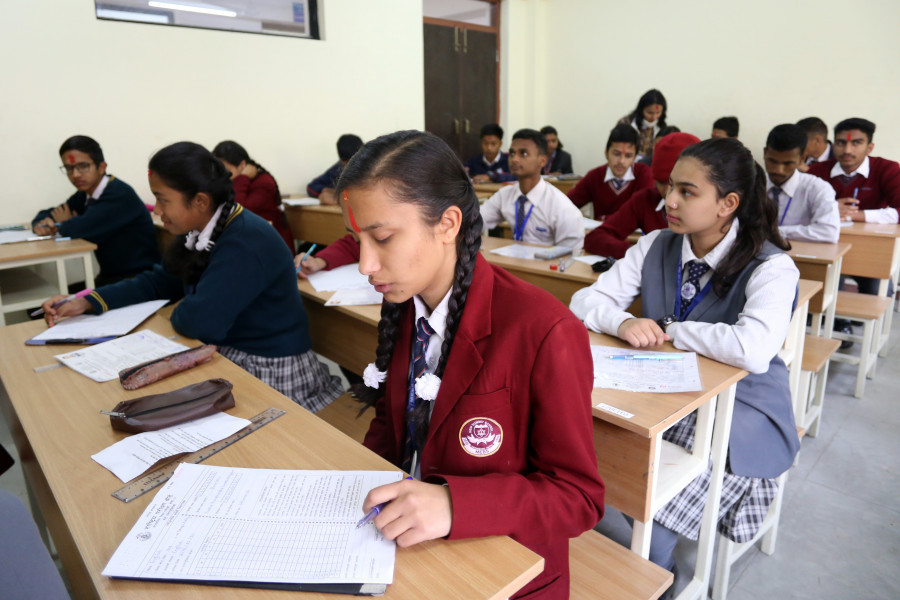Editorial
Pupils in limbo
The cabinet needs to reconsider its decision to conduct in-person exams.
The Secondary Education Examinations are slated to begin on May 27, but a large part of the country is under prohibitory orders to contain further transmission of the coronavirus. As daily new infections surge and fill hospitals, local authorities in at least one-third of the country’s 77 districts have imposed lockdown-like measures, restricting nonessential movement and economic activities for as long as a fortnight. After much dillydallying between authorities and school operators, schools had been closed for only a short period before the government was compelled to impose stringent measures as the second wave of the pandemic gripped the country, affecting even children who accounted for only 4 percent of the total infections last year.
The disruptions in the wake of the second wave of the pandemic have brought a slew of rushed myopic government responses. A fortnight ago, the cabinet had decided to allow pre-scheduled examinations to take place provided health protocols were followed; but last week, the Covid-19 Crisis Management Centre decided to stop the exams saying the provisions were misused and crowds were gathering. Children and teachers have returned to ‘online classes’ since the government decided to shut schools and halt all exams, but some half a million teenagers who’ve been preparing for their SEE exams have been left in limbo amid deepening uncertainties of the country’s situation. This scenario is stressful for the children, and the government cannot cancel the exams at a day’s notice as it did last year.
These are turbulent times. How we act and adapt to the deteriorating situation will determine the course of the future. It calls for leadership at all levels to make science guided decisions, be it lifting restrictions or conducting sit-in exams so that we can get out of this pandemic safely and return to some level of certainty and relieve ourselves of this heightened anxiety, especially for children who are spending more time indoors with adults and glaring at screens. The mental agony of the pandemic, researchers say, puts children at risk of psychological distress, and it is uncertain what the long-term effects could be.
Under pressure from family, peers and teachers to continuously perform better and score better grades, children are exploited for prestige, as was evident when schools last year inflated the marks after the cabinet decision to award SEE certification based on their performance in the internal exams. In what is an abuse of authority and a dishonest act from school operators, the number of students scoring GPA 4 was exponentially higher than in previous years—9,319 compared to 106 in 2019. Schools that are supposed to instil values of fair competition openly cheated when it came to marking their students, and this has robbed the children of what would have been otherwise an excellent way to assess the students amid a pandemic.
The dishonesty of school operators led the cabinet earlier this year to drop internal assessment by schools and conduct in-person exams this year. The cabinet also refused to delegate the authority to provincial governments to conduct the exams and authorised the Central Examination Board, which is now printing the question papers. The cabinet, in light of the record daily new infections and deaths, needs to reconsider its decision to conduct in-person exams, and explore the best mediums to assess the students. Like in all sectors disrupted by the pandemic, the world has seen innovative ideas to impart education and conduct exams in modified formats that assess the students’ ability to learn rather than learn by rote.




 16.12°C Kathmandu
16.12°C Kathmandu














